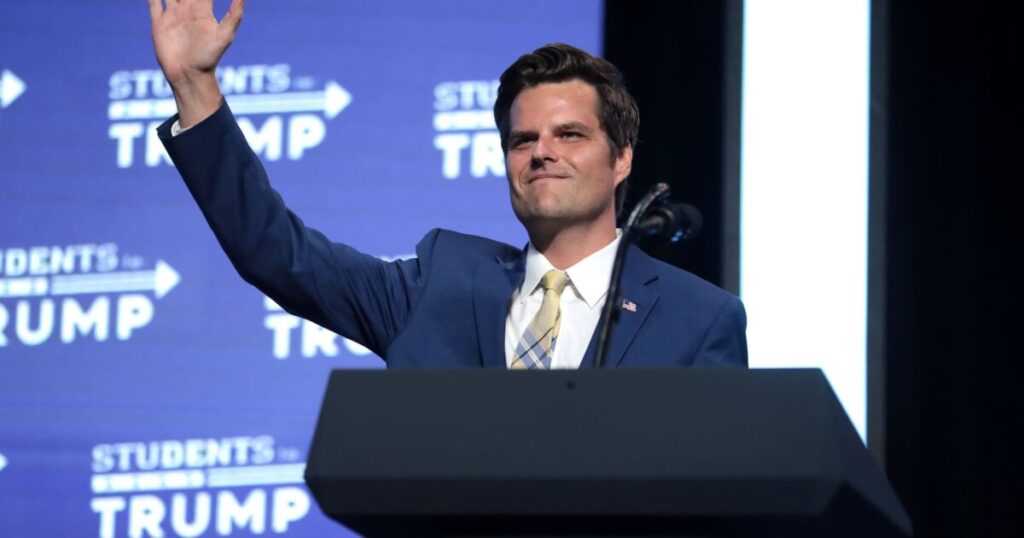The House of Representatives recently voted to dismiss two resolutions proposed by House Democrats aimed at compelling the House Ethics Committee to release a report concerning former Representative Matt Gaetz. Reports indicated that the resolutions were effectively terminated when the House referred them back to the committee, negating the Democrats’ attempts to make the report public. This decision comes in the wake of Gaetz’s resignation from Congress, which occurred last month after President Trump announced his nomination for U.S. Attorney General. Gaetz’s departure from office led to the Ethics Committee losing jurisdiction over its years-long investigation into allegations of sexual misconduct against him.
Despite the formal cessation of the investigation post-resignation, Democrats have sought to release the findings of the Ethics Committee’s probe, which had reportedly yielded a damaging report regarding Gaetz’s conduct. There have been claims of selective leaking from the “Deep State,” with snippets of information from the report making their way to the media, raising public interest. In addition, a ‘hacker’ purportedly accessed a significant amount of material from the so-called damaging report, further complicating the matter and amplifying scrutiny on Gaetz.
Gaetz had previously faced a range of serious allegations that culminated in an investigation by the House Ethics Committee. However, this investigation faced a significant pivot when the Department of Justice, under the Biden administration, exonerated Gaetz of any criminal wrongdoing and shelved the related charges in February 2023. Reports suggest that the inquiry was reactivated later that year as Gaetz intensified his opposition to then-Speaker Kevin McCarthy, a move that coincided with escalating tensions within the Republican Party.
In light of the congressional turmoil, Gaetz’s actions led to McCarthy’s eventual ousting, which Gaetz was instrumental in orchestrating through a Motion to Vacate. As the investigation’s clouds continued to hang over him, Gaetz had posed a renewed threat to McCarthy in the form of another Motion to Vacate in October 2023. This prompted a backlash from some of McCarthy’s allies, who began to contemplate expelling Gaetz from Congress based on the ongoing Ethics Committee investigation, despite his previous exoneration.
As Gaetz withdrew from consideration for the Attorney General position, he insinuated that he would still be involved in supporting Trump’s initiatives from a different vantage point. This statement indicated his continued engagement in party politics, despite the fallout from the allegations and the ongoing scrutiny that accompanied his name. The situation reflects a larger narrative within the Republican Party, marked by inter-party conflicts, the impact of administrative investigations, and the interplay of loyalty and ambition in the party’s power dynamics.
The culmination of these events illustrates the precarious nature of political careers, particularly in an era characterized by intense partisanship and public scrutiny. As the House moves forward, the implications of Gaetz’s resignation and the block on the Ethics Committee’s report may resonate throughout the Republican Party and shape strategic moves in the lead-up to future elections. The ethical questions surrounding Gaetz, combined with party loyalty and factional challenges, present a complex tableau for congressional politics as legislators navigate allegations, investigations, and their political futures.

